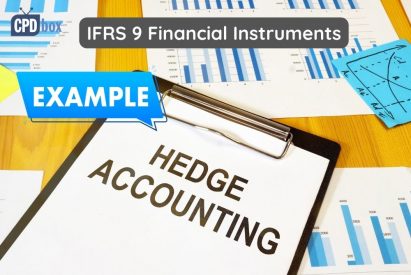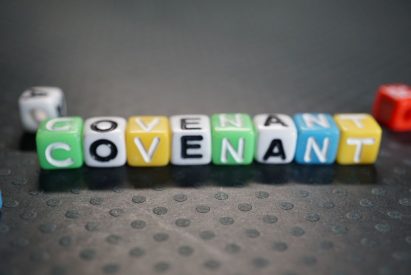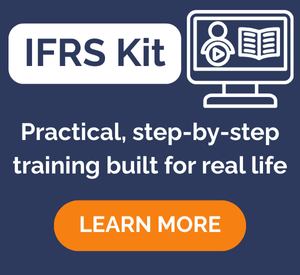IFRS 9 Hedge accounting example: why and how to do it
Hedge accounting is an optional model for reporting the derivatives, yet it is not a free ride: there are conditions and admin work to do. So, if there is so much additional work related to hedge accounting, why even bother? Well, some people say that…
Monetary or Non-Monetary?
Updated: 2023 – please scroll below to download the infographics for your future reference, it is free. When you need to translate your items denominated in foreign currency to your own functional currency, then there’s one little problem: Is that item monetary or non-monetary? If…
How to account for income from loan application fees?
How to account for the loan origination fees or the loan servicing fees? In profit or loss? Amortize? Find out here!
Contract Asset vs. Trade Receivable – What’s the Difference?
What is the difference between contract asset and receivable? When to book a contract asset and when a receivable? Learn here (with example)!
ECL: How to Measure Probability of Default
Expected credit loss challenges many experienced accountants and finance people, because it contains the element of uncertainty and some sort of guessing or estimating what can happen in the future. That’s why it is “expected” after all. I wrote a few articles about the process…
How to account for financial guarantees under IFRS 9?
What is a financial guarantee? What is it NOT? And, how to account for financial guarantees under IFRS 9? Learn here!
How to calculate impairment on intercompany loans?
How to determine the impairment on intercompany loans under IFRS 9? What are the special considerations in relation to groups and internal loans? Learn here!
How to present a loan with breached covenants?
So, you have a long-term loan, you breached the covenants and it became repayable on demand. Is it current or non-current? Learn here!
How to test hedge effectiveness under IFRS 9?
How to assess hedge effectiveness prospectively under IFRS 9? Do we need to calculate the hedge effectiveness retrospectively?
How to account for contracts to buy commodities with future delivery (own use)?
When you purchase a commodity with future delivery for fixed price, should you account for it as for derivative under IFRS 9? Or as a purchase of inventories (“own-use” contract)? Find out here with example included.
Recent Comments
- BiG4 on IAS 23 Borrowing Costs Explained (2025) + Free Checklist & Video
- Mpho on How to present leases under IFRS 16 in the statement of cash flows (IAS 7)
- Silvia on IFRS 18 Explained: Full Guide + Free Video Lectures + Checklist
- Bilawal on IAS 16 PPE Explained (2025): Full PPE Guide + Free Compliance Checklist
- Augustine Fabuinkwi on IFRS 18 Explained: Full Guide + Free Video Lectures + Checklist
Categories
- Accounting Policies and Estimates (14)
- Consolidation and Groups (25)
- Current Assets (21)
- Financial Instruments (56)
- Financial Statements (54)
- Foreign Currency (9)
- IFRS Videos (74)
- Insurance (3)
- Most popular (6)
- Non-current Assets (56)
- Other Topics (15)
- Provisions and Other Liabilities (46)
- Revenue Recognition (27)
- Uncategorized (1)













